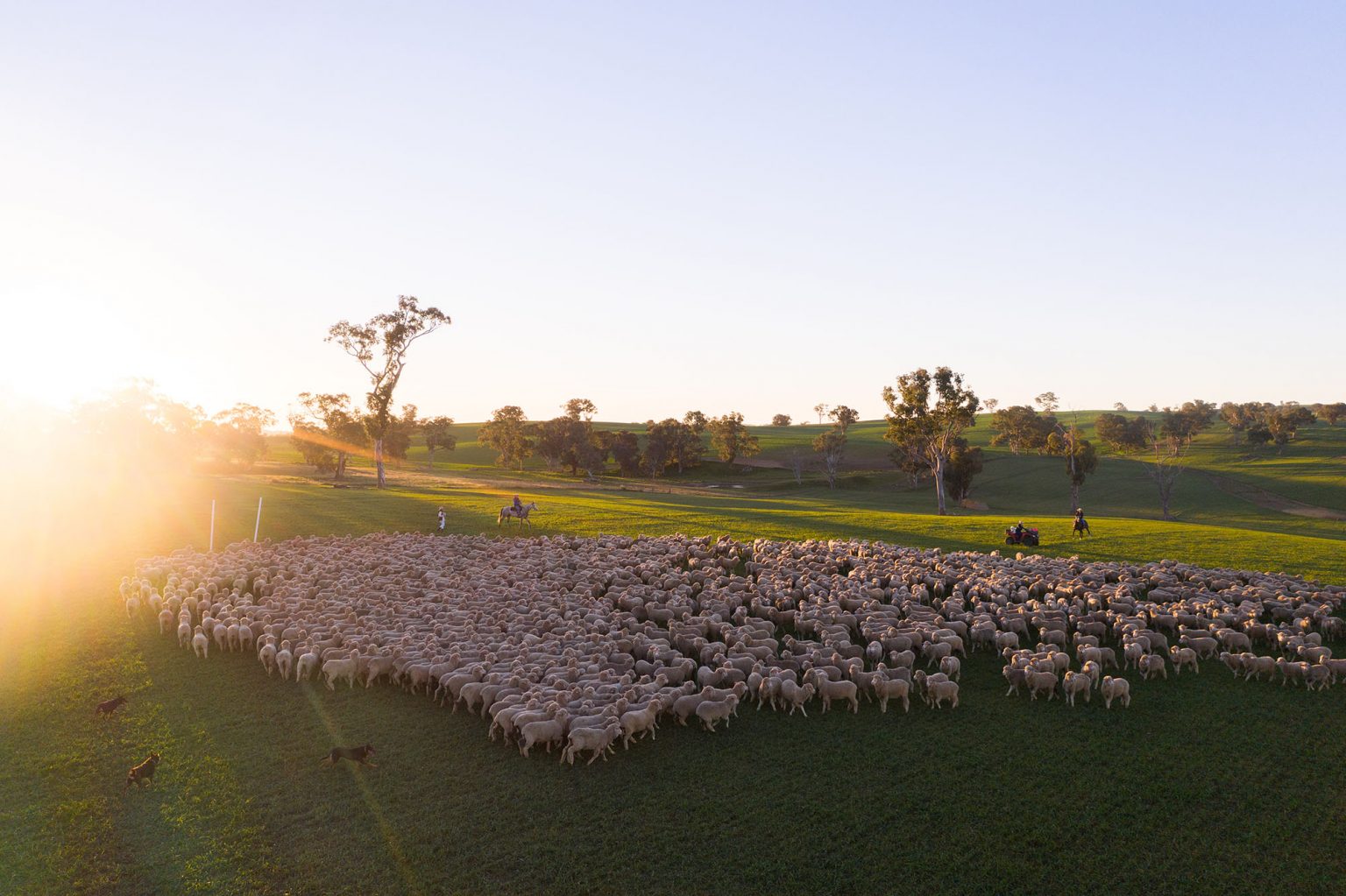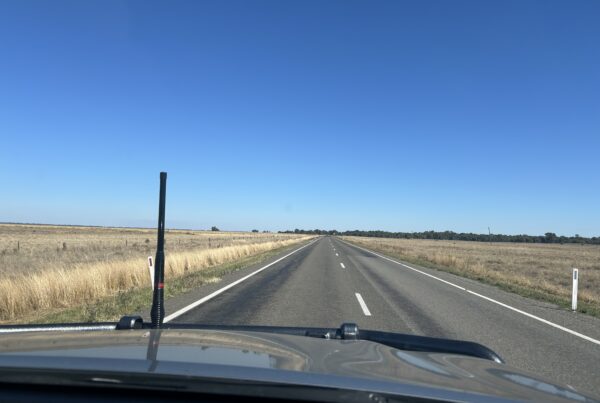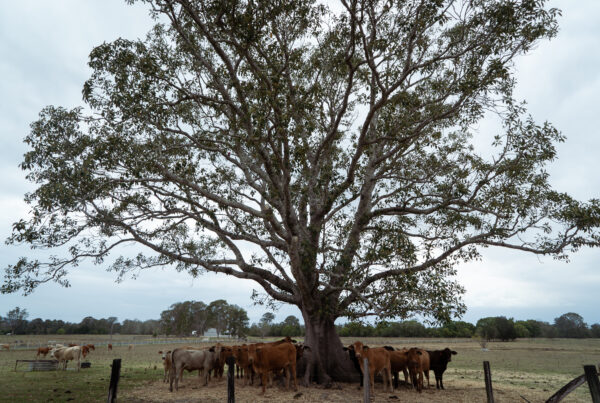14 May 2024
Farmers for Climate Action (FCA) appreciates the opportunity to provide a submission on the Climate Change Authority’s (CCA) 2024 Issues Paper: Targets, Pathways and Progress.
FCA understands that in mid to late 2024, the CCA will be providing a series of reports to the Commonwealth government regarding national emissions reduction targets and the transition to a net-zero economy. FCA has recently engaged in consultations about sectoral emissions reduction targets, providing detailed submissions to both the Agriculture and Land Sectoral Plan (available here) Electricity and Energy Sector Plan. These submissions provide essential background information as well as a deeper dive into some of the key issues for agriculture and should be considered alongside this submission.
Key Points
- Farmers across Australia are already feeling the impacts of climate change on their farm businesses and are taking decisive action to reduce emissions and build climate resilience.
- Global and local food security must be considered as part of discussions on agricultural sector emissions, as outlined in FCA’s recent submission to the Agriculture and Land Sectoral Plan.
- Farmers are already recognising pressure from financial and insurance institutions, supply chains and international reporting requirements, which in some cases have targets that are far more ambitious than Australian targets.
- FCA supports the development of a 2035 target that is:
- Based on the latest science and modelling that recognises the risk that feedback loops will accelerate the pace of climate change;
- Provides ambition to make deep cuts this decade to ensure we can meet the Paris Accord target of 1.5 degree warming;
- Considers not just the cost of action, but the cost of inaction on the environment and communities;
- All targets must be supported by commensurate funding for research, development, and commercialisation of technologies, as well as funding for extension services to help the agriculture sector understand and take up emissions reduction opportunities.
- Targets must be based on evidence regarding the efficacy and cost of potential abatement actions and not rely on technologies that are either unproven or more expensive than existing options.
- Emissions reduction targets must be based on real and quantifiable emissions reduction opportunities and not rely on offsets.
- A standard national methodology for calculating on-farm emissions is a necessary precursor to understanding and measuring emissions reduction. This must be led by government in consultation with industry.
About Farmers for Climate Action
Representing over 8,200 farmers and backed by 45,000 supporters nationwide, Farmers for Climate Action (FCA) recognises the importance of safeguarding the ability of farmers to produce food and fibre for the nation and export, while seeking the deep emissions reductions we need to limit warming to 1.5 degrees if possible. FCA is a movement of farmers, agricultural leaders and rural Australians working to influence Australia to adopt strong climate policies by growing the number of farmers, farming communities and elected representatives championing ambitious action.
Farmers are already feeling the impacts of climate change, in both shifting climate zones as well as an increase in frequency and intensity of extreme weather events. Agriculture is the most vulnerable sector to climate impacts, and projected productivity declines are likely to impact all subsectors. Changes in seasonal conditions have already reduced farm profits by an average of 23% over the period 2001 to 2020. We are all dependent upon a viable agriculture sector as farmers produce more than 90% of the fresh food we consume in Australia, and export around 70% of total production per year. When farmers experience climate-driven disasters on farms and along freight routes, consumers experience empty supermarket shelves and higher prices, and we risk food security.
Many farmers are taking steps to reduce their on farm emissions, as demonstrated in FCA’s 2023 survey which found that:
- 92% of farmers responding to the survey have experienced changes in seasonal conditions and climate-related on-farm impacts in the past three years.
- 71% of farmers are already investing in emissions reduction measures on farm. They are telling us they want to do more, with 64% planning to invest in future or additional emissions reduction measures in the next five years.
Ambitious targets have been set and are being worked towards, examples include red meat’s carbon neutral 2030 (CN30) goal, and pork’s aim of net zero by 2025. In common with other sectors, while some farm businesses can already demonstrate that they are carbon neutral, the lack of legislated national targets and policy certainty until recently in Australia has hindered investment confidence and progress. It is imperative that the government recognise agriculture and regional communities are comprised of tens of thousands of independent businesses that will require support, incentives, and policy leadership to collectively achieve net zero.
Targets Need to Consider Local and International Perspectives
Any target for 2035 needs to carefully balance ambition with real and genuine opportunities to reduce emissions. Submissions to the sector emission pathway consultations (as linked earlier) should form the evidence basis for the majority of the work in developing CCA’s recommendations. This advice must be overlaid with the broader economy-wide and global perspective, which needs to recognise the potential that ‘feedback loops’ will amplify the impacts of climate change over time. This perspective must consider the cost of not just action on climate change, but of inaction, on both our communities and businesses, as well as broader ecological systems. We must make deep emissions cuts this decade to ensure that we avoid 1.5 degrees of warming.
Targets Supported by Commensurate Funding
Many pathways to reduce emissions from agriculture are already available – including opportunities to upgrade energy systems and increase efficiency. Other emission reduction opportunities require more research – including feed additives for ruminants, electrification of heavy farm machinery, and these new opportunities application to diverse commodities and farming systems. In the first case, the roll out of existing opportunities requires investment in farmer extension and other information services, as well as investment in a regionally based skilled workforce to support the technologies. In the latter case, significant investment is required in research, development, and commercialisation for new technologies where there are currently limited opportunities to reduce emissions. In both cases, it is government’s role to incentivise change to drive rapid decarbonisation – including matched funds, subsidies, grants, markets, or tax incentives, to highlight just a few options.
Targets Must not be Reliant on Offsets
New Australian targets for 2035 must be based on genuine emissions reductions and not assume the use of offsets. To date, the land and agriculture sectors have been identified as potential suppliers of much of the credits for a carbon market. However, increasingly, it is becoming less clear that the volumes of credits needed to meet other sector’s emissions offsetting can be generated by the agriculture and land sector in the long term (see here and here). Additionally, farmers in many cases will need to keep their own carbon credits for insetting, for example, where a dairy farmer needs to meet international supply chain targets and needs to inset credits to cancel out enteric methane they cannot otherwise abate.
Banks and insurers are also requesting farm carbon accounting, and these essential suppliers may also have targets that farmers are required to meet. Many agricultural commodity groups and independent experts are currently recommending that farmers consult with their supply chains before selling their credits on the carbon market to ensure that they can meet these supply chain targets. This may significantly reduce the opportunity for other sectors to use agricultural carbon credits to offset their own emissions.
Targets Must not be Based on Speculative or Expensive Technologies
Targets must be based on realistic evidence about the potential cost and efficacy of abatement options. Technologies that have failed to prove advantageous despite extensive funding should not be prioritised above more promising opportunities. FCA includes both Carbon Capture and Storage (CCS) and Nuclear Energy in this category. Nuclear power, as is currently commercially available, is unlikely to provide cost effective and timely opportunities for emissions reductions compared to alternative large scale renewable opportunities which can be implemented in as little as twelve months. Carbon Capture and Storage is not supported by FCA as it remains unproven and expensive. In some cases CCS may pose a risk to other natural assets, and can be an excuse to delay necessary closure of polluting fossil fuel industries.
National Standards Must be led by Government to Support Investment and Market Confidence
A standard national methodology for calculating on-farm emissions is a necessary precursor to understanding and measuring emissions reduction. The Government should allocate funds to ensure the widespread adoption and implementation of Agricultural Innovation Australia’s Environmental Accounting Platform, which has been developed with support from leading Regional Research and Development Corporations. The Environmental Accounting Platform is designed to meet the critical need for a centralised, standardised, and user-friendly tool to streamline the process of environmental accounting.
Setting Australia’s pathway towards Net Zero is more important than ever. We must focus on ambitious targets that allow us to make deep emissions reductions as soon as possible. Targets must be based on practical advice at a business and sector level, combined with a national and global view, and need to be backed up with significant funding support for research, development, commercialisation, and rollout of new emissions reduction technologies. Finally, emissions reductions must be genuine and long lasting.
FCA is committed to helping farmers make these deep cuts, and to working with governments to drive policy change to support action, and we look forward to continuing to participate in consultation on the development of essential new targets. If you have any further questions or would like to discuss this submission or our sector plan submissions, please do not hesitate to contact myself or our General Manager Policy and Advocacy, Megan Hill, on the number below.
Yours sincerely,
Natalie Collard
CEO
Email: [email protected]
Phone: 1800 491 633
Web: farmersforclimateaction.org.au
Post: 700 Swanston Street, Level 2, Melbourne Connect Co-Working, Carlton, VIC, 3053
Neal Hughes and Peter Gooday, “ABARES Insights: Analysis of Climate Change Impacts and Adaptation on Australian farms” (Department of Agriculture, Water, and the Environment, 2021).
Tony Wood, Alison Reeve, and James Ha, “Towards Net Zero: Practical Policies to Reduce Agricultural Emissions” (Grattan Institute, 2021).






